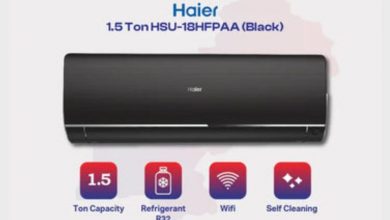Medical Billing Software: A Must-Have for Small Practices

Running a small practice is a rewarding opportunity to build long-term, close, and trustworthy relationships with patients, staff, and the community. The quality of service you provide to the patients genuinely makes a difference.
However, as a healthcare provider, it might be difficult for you. The headaches of complex billing and time-consuming regulatory requirements often leave practitioners in a dilemma. The cherry on top is the fierce competition among healthcare providers.
So, what could be the best solution to deal with these challenges? Don’t worry; we will let you know the perfect solution in this blog.
Want a hint? Here it is: the use of medical billing software for small practices. This software allows you to get access to several features and tools. These tools streamline the billing process, reduce errors, ensure compliance, and optimize resources.
This article explores the key features of medical billing software and its advantages for small practitioners. We will also discuss a few actionable steps to advance your search for the most suitable solution for your unique practice
Why Your Practice Needs Medical Billing Software
Medical billing software manages the entire billing process for healthcare providers. It creates and sends invoices, tracks payments, and manages patient billing information. One of the most important features of medical billing software is that it automates these processes and helps providers get paid faster and more accurately.
This level of efficiency is essential for smaller medical practices to maintain consistent cash flow and guarantee timely receipt of full payments. Additionally, it helps with day-to-day operations by freeing your team of administrative responsibilities and providing them with more time to concentrate on patient-forward, growth-promoting tasks.
These advantages enable small practices to overcome numerous obstacles when taken as a whole. Here’s how:
- Regulatory Compliance: Maintaining compliance with healthcare regulations is a constant challenge for medical billing services. Small practices find it difficult to keep up with the ever-changing regulations. This can put them at risk of legal troubles and penalties.
- Financial Constraints: Financial constraints further complicate matters for these practices. Limited budgets and inconsistent revenue streams make it difficult to invest in new technologies, hire more staff, or expand their services.
- Technological Advancements: Small healthcare practices struggle to keep up with technological advancements. It can cause inefficiency and dissatisfaction among patients.
- Maintaining Data Security: Data security is also a significant concern. Smaller practices may not have robust measures in place to protect against data breaches and cyberattacks. It can increase costs and damage the reputation of their practice.
- Use of Electronic Health Records (EHRs): Implementing electronic health records (EHRs) is crucial for improving the accuracy and accessibility of patient records. However, it requires significant investments in both time and money.
Billing software automates tasks like data entry, reduces errors, and ensures compliance with healthcare regulations. This streamlines operations and optimizes revenue management, benefiting both the practice and its patients.
The Key Highlights of Medical Billing Software for Small Practices
Medical billing services for small practices are unique. Every specialty can have its own set of needs. That’s why it’s crucial to find a medical billing solution that fits your specific needs perfectly.
Here are the essential features to consider:
-
Appointment Scheduling
Efficient processes are essential. With unified software, your staff can efficiently manage patient appointments along with billing information. They can handle cancellations, reschedule appointments as needed, and ensure everyone has access to the latest information, reducing billing errors.
-
Eligibility Verification for Patients
Keep patient insurance information stored in the software for quick eligibility checks. This means you can verify benefits within seconds, cutting down on time spent on phone calls and reducing patient wait times. It also lowers the risk of billing errors and denied claims, providing clarity on service coverage and patient financial responsibilities upfront.
-
Automated Patient Communication
You can simplify patient communications with automated features like appointment confirmations, reminders, and payment notifications. Automating these tasks allows you to reduce no-shows, manage early arrivals more effectively, and send timely reminders about pending payments after appointments. This not only improves patient satisfaction but also eases the workload of your administrative staff, ensuring high-quality patient care.
-
Medical Coding
Medical billing software has automated billing features that can verify and correct the codes (CPT, ICD-10 & HCPCS) entered into the system. These cloud-based systems have rule engines that detect errors and streamline medical billing services. Moreover, they ensure that codes correspond with the services provided.
It leads to minimal human error during manual entry and clean claim submissions. These claims will get quicker approval from the insurance payers, leading to faster and more accurate reimbursements.
-
Patient Portals and Databases
Billing software usually has a patient portal through which patients can see their invoices, history, and upcoming appointments. This way, they can have mental satisfaction and relaxation about their future treatment appointments.
Practitioners can access important information related to medical billing services at their fingertips. This may include appointment, insurance, and revenue cycle management purposes. Patient portals in medical billing software make it easy to access patient data while improving accuracy.
Do you want to know the patient portal’s best part? It supports telemedicine services. Telehealth is rapidly growing. Between 2018 and 2023, the U.S. telehealth services industry experienced an average annual growth rate of 27.4%. So, implementing a patient portal that supports telehealth is a good way to keep pace with the industry.
-
Security and Compliance
After the latest data breach in February 2024 at Change Healthcare Company, staying compliant with industry regulations is more important than ever. So, medical billing software must be compliant with HIPAA guidelines. Other compliance features might include audit trails, secure data encryption, and role-based access controls.
The software should also have advanced features like prevention of unauthorized access and data breaches.
The Bottom Line
Cloud-based software can be very helpful in medical billing services for small practices. And yes, you might be worried about the cost factor. Don’t worry; we have a solution for that too. You can hire a trustworthy medical billing company that will handle your entire medical billing process and provide you with advanced billing software. These companies have the expertise and resources to get you fully reimbursed for the services rendered. The plus point? They provide these services at affordable prices.
Key Takeaways:
- Medical billing software can streamline your billing process.
- It can save your practice from any penalties and data breaches.
- It can also optimize your revenue cycle and daily operations.
- You can outsource your medical billing services to a reputable medical billing company.





